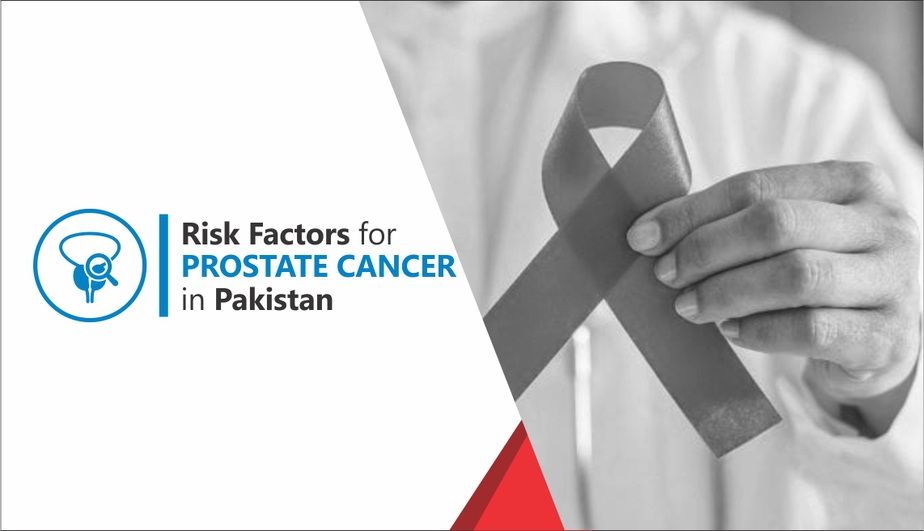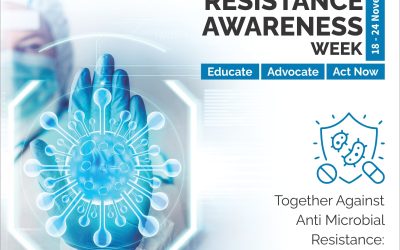Risk Factors for Prostate Cancer in Pakistan

Though all men are at risk of having prostate cancer. Approximately one out of every nine men will be diagnosed with it over their lives, but only one out of every 39 will die from it. Approximately 80% of men over the age of 80 have cancer cells in their prostate. Other factors, other than being male, contribute to the risk.
Consult your urologist to see if you are at risk of getting any of these symptoms.
Following are the risk factors for prostate cancer.
Age
Age is the biggest contributing factor to prostate cancer. The most significant factor that increases your chances of developing prostate cancer is your age. At 50, your chances increase dramatically if you’re white and have no family history. They increase at 40 if you’re black or have a close family with prostate cancer. Men aged 65 and up, account for around two-thirds of all prostate cancer cases. However, as you get older, the disease becomes less aggressive, especially around the age of 70.
Family History
Men with a family history of prostate cancer are thought to be at a higher risk. Prostate cancer is more than twice as likely if you have a father or sibling who has it. It indicates that having a sibling with prostate cancer makes it more likely than having a father with the disease. When numerous family members are impacted, your chances increase even more. Men who have a family history of prostate cancer should begin screening at the age of 40.
Several hereditary genes have been discovered to increase the risk of prostate cancer, according to research. According to experts, the hereditary form of prostate cancer accounts for about 5% to 10% of all occurrences.
Ethnicity
African-American males are 60 percent more likely than white men to have prostate cancer. And the cancer is more likely to be advanced when it is discovered. Prostate cancer is uncommon among Japanese and African men in their own countries. When men arrive in the United States, their numbers skyrocket. Prostate cancer screenings for African-Americans should begin at the age of 50.
Doctors aren’t sure why various races have varied rates of prostate cancer, but they believe factors in the environment interact to increase the risk:
- Diets with High Fats
- Less exposure to Sunlight
- Exposure to heavy metals like cadmium
- Things that cause infections
- Smoking
Diet
High dietary fat may also be connected to prostate cancer, according to research. Men in countries with a high-fat diet consume fewer fruits and vegetables than men in countries with a low-fat diet. When compared to countries where the fundamental diet consists of rice, soybean products, and vegetables, the disease is far more common in places where meat and dairy products make up a large part of the diet.
Sedentary Lifestyle
Although there hasn’t been much research to determine how closely physical inactivity is associated with prostate cancer, it has been found to play a role in other malignancies such as colon and endometrial cancers. However, because a lack of physical exercise is typically associated with obesity and metabolic syndrome, it may be also linked to prostate cancer.
Obesity
Prostate cancer appears to be unaffected by excess weight. However, it may reduce your chances of getting a low-grade variety and increase your chances of getting an aggressive one. Although not all studies agree, some evidence suggests that obese men have a higher risk of developing advanced prostate cancer and dying from it.
Lynch Syndrome
Lynch syndrome, commonly known as hereditary non-polyposis colorectal cancer (HNPCC), is a congenital defect. It can increase your risk of a variety of cancers, including prostate cancer.
BRCA1 or BRCA2 Gene Changes
These mutations are what your doctor could refer to them as. They’re something you’re born with, so they’re risk factors you can’t change. They run in families, but only a tiny percentage of people are affected. In women, they increase the risk of breast and ovarian cancer, and in some males, they increase the risk of prostate cancer.
Preventing Prostate Cancer
Different forms of cancer are caused by various circumstances. Researchers are still trying to figure out what causes prostate cancer and how to prevent it. While there is no way to avoid prostate cancer, there are ways to reduce your risk. For more information about your cancer risk, you can visit a cancer hospital or speak with your healthcare team.
Chemoprevention
BPH is frequently treated with 5-alpha-reductase inhibitors (5-ARIs), which include dutasteride (Avodart) and finasteride (Proscar). They may also reduce the risk of prostate cancer in men. Previous clinical trials suggested that 5-ARIs were associated with more aggressive prostate tumors, however, subsequent research contradicts this.
According to the findings of long-term follow-up research published in 2013, 78 percent of those who took finasteride or a placebo 15 years later we’re still living. These findings indicate that using finasteride does not reduce the risk of dying from prostate cancer. These medications have not been authorized by the US Food and Drug Administration (FDA) for prostate cancer prevention. The FDA, on the other hand, has approved a 5-ARI for the treatment of BPH-related lower urinary tract symptoms.
Each person makes their own decision on whether or not to take a 5-ARI. Anyone thinking about taking this class of drug should talk to their doctor about the potential advantages and negative effects.
Dietary Changes
There is currently insufficient data to provide specific suggestions concerning the significance of dietary habits in prostate cancer. To minimize the risk of prostate cancer later in life, dietary adjustments may need to be made many years earlier in a person’s life.
Here is a summary of the current research:
- Regularly eating high-fat foods, particularly animal fat, has been linked to an elevated risk of prostate cancer in several studies. However, no prospective studies have shown that a high-fat diet increases the risk of prostate cancer. Prospective studies look at persons who eat either a high-fat or low-fat diet and count the number of men diagnosed with prostate cancer in each group.
- Prostate cancer risk may be reduced by eating a diet rich in vegetables, fruits, and legumes like beans and peas. Which nutrients are directly responsible is unknown. Although lycopene, a vitamin present in tomatoes and other vegetables, has been linked to a reduced risk of prostate cancer, the evidence does not support a link between lycopene and cancer prevention.
- There are currently no specific vitamins, minerals, or other supplements that have been demonstrated to prevent prostate cancer in clinical trials. Before taking any supplements to prevent prostate cancer, see your doctor.
- Changes in dietary habits may not be enough to prevent or halt the progression of prostate cancer. Such adjustments would probably have to be made early in life to be effective.




0 Comments